Trump 'deranged', says Kim as NKorea hints at Pacific H-bomb
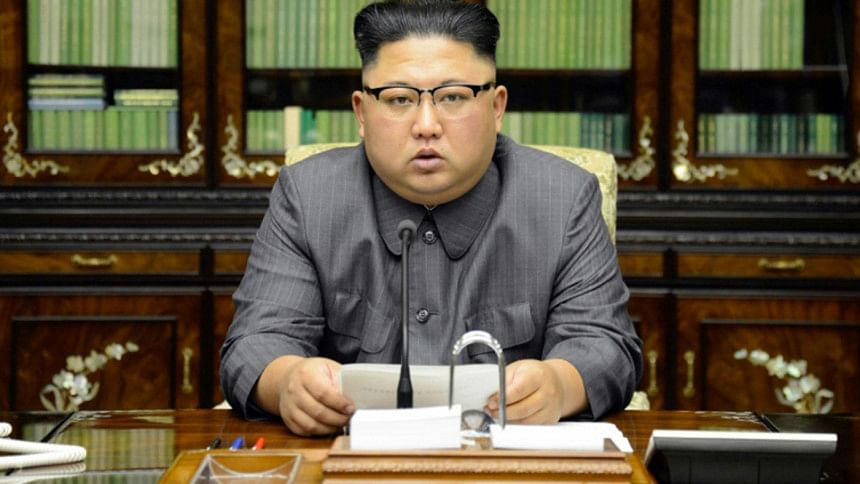
US President Donald Trump is "mentally deranged" and will "pay dearly" for his threat to destroy North Korea, Kim Jong-Un said Friday, as his foreign minister hinted the regime may explode a hydrogen bomb over the Pacific Ocean.
In a rare personal attack published hours after Washington announced tougher sanctions, the North Korean leader took aim at Trump over his maiden speech to the UN General Assembly in which he branded Kim "Rocket Man" and threatened to "totally destroy North Korea".
Trump "insulted me and my country in front of the eyes of the world and made the most ferocious declaration of a war in history", Kim said, according to the official Korean Central News Agency.
"I will make the man holding the prerogative of the supreme command in the US pay dearly for his speech," which he called "unprecedented rude nonsense".
The dispatch was accompanied by a photo of the North Korean leader sitting behind a desk holding a piece of paper.
"I will surely and definitely tame the mentally deranged US dotard with fire," he said.
On the fringes of the UN General Assembly in New York, North Korean Foreign Minister Ri Yong-ho told reporters Pyongyang might now consider detonating a hydrogen bomb outside its territory.
"I think that it could be an H-bomb test at an unprecedented level perhaps over the Pacific," he said.
However, he added: "It is up to our leader so I do not know well."
Sanctions
Kim's retort was published after Trump announced he had signed an executive order to ban firms from operating in the United States if they deal with North Korea.
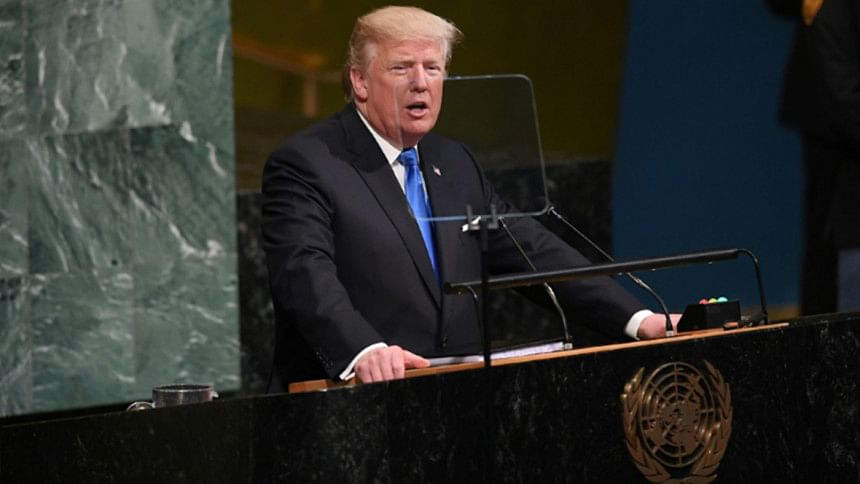
The move was the latest effort to tighten the screws on Pyongyang over its banned weapons programmes, which have quickened with its sixth nuclear test -- the largest yet -- and the firing of two missiles over Japan.
It also came after the UN Security Council agreed a further set of sanctions on North Korea, aimed at reducing its ability to trade with the outside world.
Analysts say the sanctions show no signs of working, and cautioned that the increasingly ill-tempered and personal exchanges between Washington and Pyongyang did not auger well.
"There are some very dangerous things that could come that move this from theatre to reality. This is the time to be heading them off, not making them feel inevitable," said John Delury of Yonsei University in Seoul.
He added that Kim's rare first-person statement, which was expected to be broadcast on local television, could also have been aimed at North Koreans.
"He is telling his country that the American president at the United Nations said he is going to totally destroy us -- he is going to totally destroy you -- but I am not going to let that happen," Delury told AFP.
Talks?
Washington has refused to negotiate with Pyongyang, despite appeals to do so from China and Russia, who are both uneasy over Trump's bellicose tone.
However in a meeting with Japanese Prime Minister Shinzo Abe and South Korean President Moon Jae-in, Trump suggested the door to dialogue was open.
"Why not?" he said, when asked whether there could be talks with Pyongyang.
The latest round of US sanctions target businesses involved in everything from technology to finance and fishing.
Trump's executive order also bans any aircraft or ship that has travelled to North Korea from landing in the United States.
US Secretary of State Rex Tillerson told the UN Security Council: "North Korea may assume that nuclear weapons may ensure the survival of its regime. In truth, nuclear weapons are clearly only leading to greater isolation, ignominy and deprivation."
China has by far the most influence on North Korea, providing an economic lifeline. But it also fears the consequences if the regime collapses, such as an exodus of refugees or a US-allied, reunited Korea on its border.
Chinese Foreign Minister Wang Yi told the General Assembly it was not too late for talks.
"There is still hope for peace and we must not give up. Negotiation is the only way out and deserves every effort," said Wang.
Those sentiments were echoed by Russian Foreign Minister Sergei Lavrov, who said that while his government condemned North Korea, "military hysteria is not just an impasse, it's disaster".
North Korean envoy Ri is expected to meet on Saturday with UN Secretary-General Antonio Guterres, who will send out feelers on possible diplomatic talks.
But Chung Sung-Yoon, analyst at the Korea Institute for National Unification, told AFP that the North itself may have shelved the idea of negotiations until after it reaches its nuclear goal.
"People say this is all part of its brinkmanship strategy to force the US to come forward for negotiation. But the North is leaving too little room for the US to do so with the latest series of threats and provocations," he said.

 For all latest news, follow The Daily Star's Google News channel.
For all latest news, follow The Daily Star's Google News channel. 


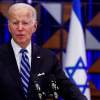

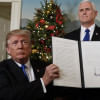
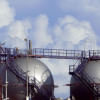


Comments